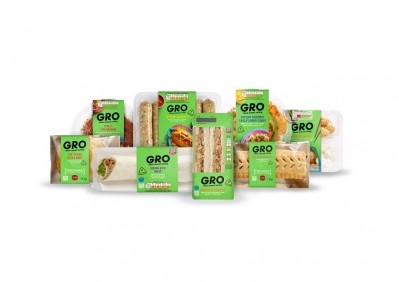Meat-free products continue to grow in popularity in UK, according to Twitter deep dive

The analysis, which was carried out by software companies Solutions for Retail Brands (S4RB) and software company Warwick Analytics, used AI techniques to categorise Twitter data captured between 15 November 2019 and 15 January 2020 and to identify the key themes for that period.
Tweets referencing vegan and vegetarian products were a top five theme for all the supermarket retailers in terms of number of mentions. The report said that Co-op, Morrisons and Waitrose & Partners customers were “over the moon with their vegan ranges, but Tesco customers want more”.
The two standout product categories for this period were ‘Festive Range’ and ‘Vegetarian and Vegan’. Both occupied the top two spots of reported products of all the retailers except Asda, where Vegetarian and Vegan placed 6th. “This year we have seen significant changes at a number of retailers as plant-based lifestyles have continued to move into the mainstream,” the report noted.
“When plotting the mentions of vegan and vegetarian products in context with the experience of the customer, the first thing that jumps out is the increase in signal noise. Every retailer has seen a significant increase vs this time last year, with Co-op seeing a nine times increase and Tesco jumping to four times last year’s numbers.
“As we look into customer experience of this product range, we find that Co-op customers are extremely pleased with the introduction of its new ‘GRO’ vegan range, Tweeting both about the availability and, crucially, how good it tastes. Waitrose & Partners customers continue to be happy with the introduction of new ranges, but get edged out by both Morrisons and Co-op when it comes to Twitter users stating they like the taste of vegan products. Social followers of Sainsbury’s are most happy with availability whilst Tesco customers continue to request more meat-free meals.”
Twitterstorms
To identify major events on Twitter – often referred to as ‘Twitterstorms’ -- the data looked at the daily volume of Tweets to see the spikes. In November, for example, a campaigner for the Brexit party was filmed being removed by security from a Morrisons store in Bolton – perfect video fodder for Twitter.
The incident spawned the #boycottmorrisons hashtag. However, the report took a deep dive into the data to get a clearer view of the public response. The top experience label on that day was ‘Charity & community’, which was the result of many people thanking Morrisons and its staff for acting in the way they did. So on balance, the incident was perceived overall as negative, but potentially not as negative as Morrisons may first have thought. “This is a great example of why looking past hashtags and simple sentiment is very important for PR teams,” the report wrote.
Twitter isn’t always associated with outrage, however. Co-op, for example, received a significant number of Tweets about community and charity, peaking in early December when annual pay-outs are made to good causes.
Meanwhile, the report recommends that brands should closely track their competitors to avoid product incidents potentially damaging them on social media. “Reviewing customer feedback on social media needn’t be restricted to retailers’ own feeds. By categorising and identifying themes and exceptions in competitor feeds, our grocers could have reacted quickly and capitalised on issues affecting competitors.”































